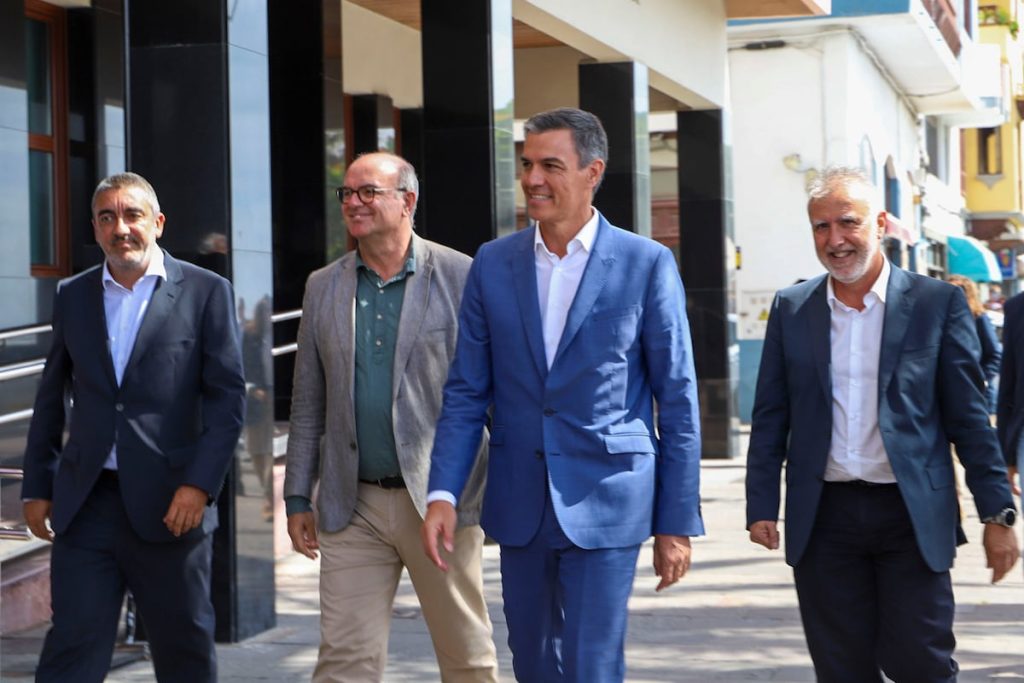The Government is pressuring the PP and the Coalition Canaria to finally resolve the crisis of underage immigrants in the Canary Islands. The central Government had reached an agreement in July with the Government of the Canary Islands, led by the Coalition Canaria and also including the PP, to reform the immigration law and allow for a mandatory distribution of minors among all regions from the archipelago (currently 5,200, expected to reach 7,000 in the fall as arrivals increase). However, the PP rejected this reform, leading to a deadlock. The Government expected the Coalition Canaria to turn against the PP for rejecting the previously agreed-upon solution, but the situation changed when Fernando Clavijo, president and leader of the Coalition Canaria, shifted his stance and began targeting the central Government.
This shift by Clavijo prompted the Government to react quickly, pressuring the Canary Islands president with strong words. The Minister spokesperson, Pilar Alegría, stated, “This is not about the distribution of competencies. This is about caring for children.” She emphasized that Clavijo should focus on convincing his ally in the Government, the PP, rather than opposing the central Government. The Government is pushing the PP to approve the processing of the immigration law reform without delay and then address other reforms afterwards. Despite meetings in August to reach an agreement, the PP suggests that the State should take in minors when regions exceed 150% capacity, while the Government insists on the mandatory distribution of minors based on the previous agreement.
The PP spokesperson confirmed a meeting in August with Clavijo and the Minister of Territorial Policy to discuss potential agreements. Clavijo presented proposals aimed at finding common ground, including changes in the reception of unaccompanied minors. However, before discussing distribution quotas, the Government insists on accepting these proposals and declaring a migration emergency. The lack of a quantitative criterion for the resources that regions need to allocate to child reception presents a challenge. The Government calls for the PP to incorporate resources for housing solutions to accommodate minors before engaging in distribution agreements.
The President of the Canary Islands acknowledged points demanded by his Government partner and shifted responsibility for the disagreement onto the PSOE. He mentioned a document with four points presented by the PP, originating from the parliamentary group rather than the PP in the Canary Islands. Despite admitting the existence of proposed conditions, no response was received from the central Government. Negotiations are ongoing, with the Government highlighting the urgency of the situation and the need for immediate approval of the agreed-upon text with additional negotiations with the PP.
There is a clear political problem at play, as the PP faces pressure from Vox and conservative sectors to reject the distribution of minors. The PP prefers the Government to enforce the distribution to shift the responsibility. The central Government urges all parties to take on their responsibilities and emphasizes the importance of providing care for the 6,000 children in need. Negotiations are expected in the coming days to address the complex political landscape surrounding the issue in the Canary Islands, with pressure mounting to find a resolution.


